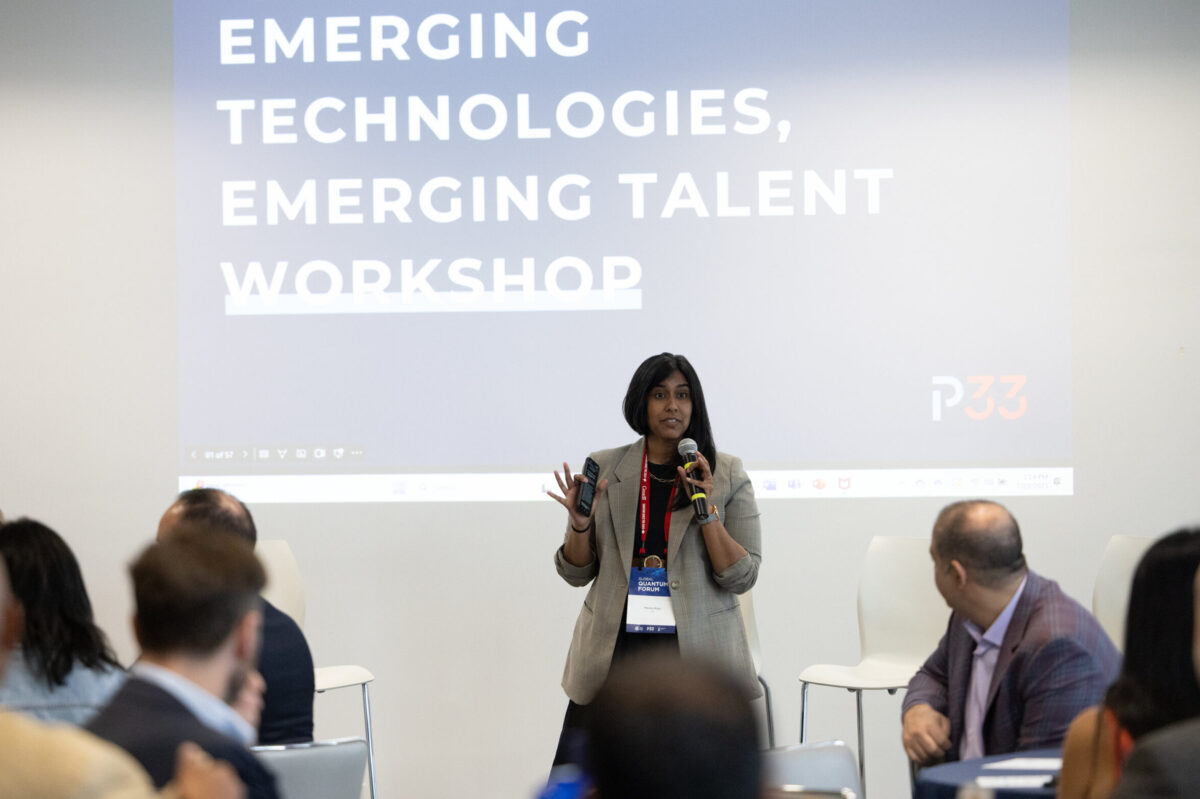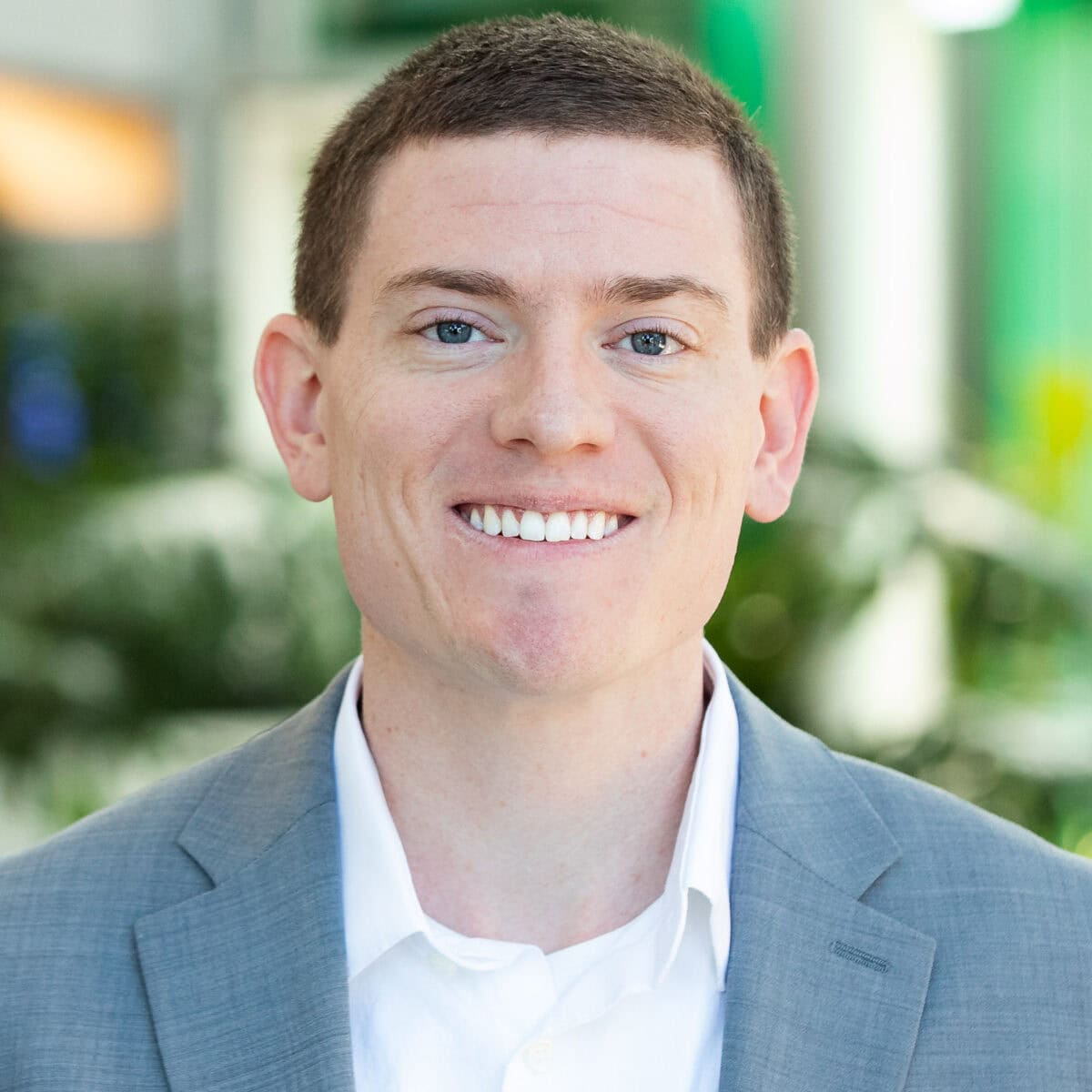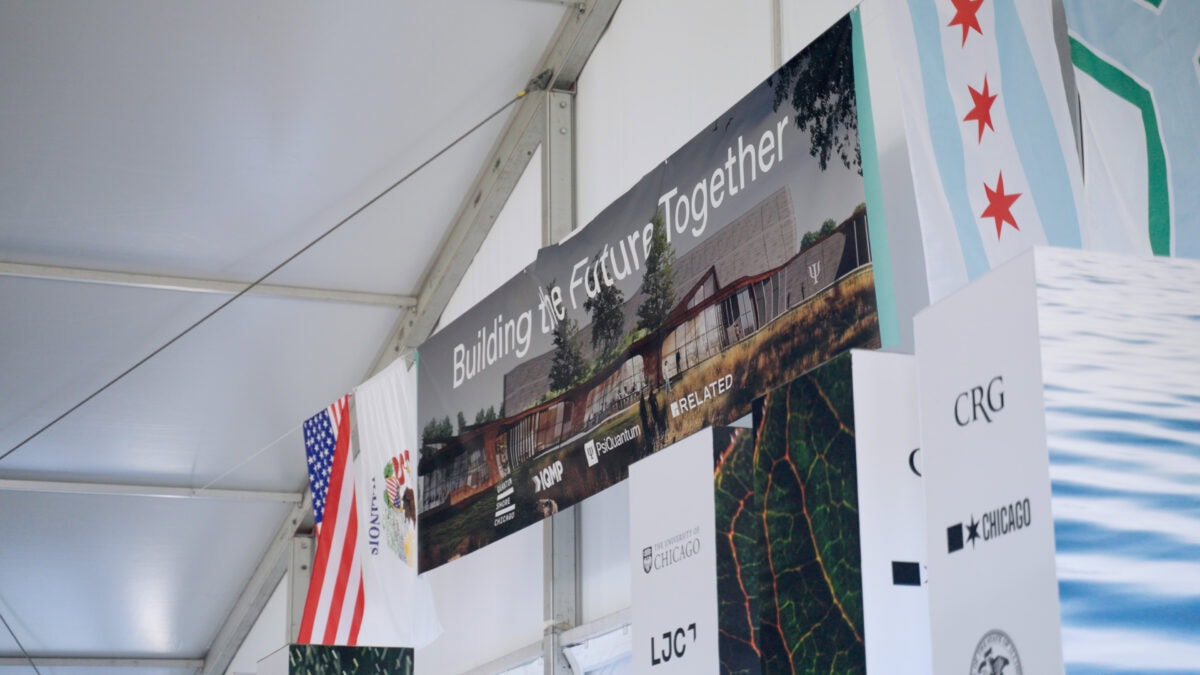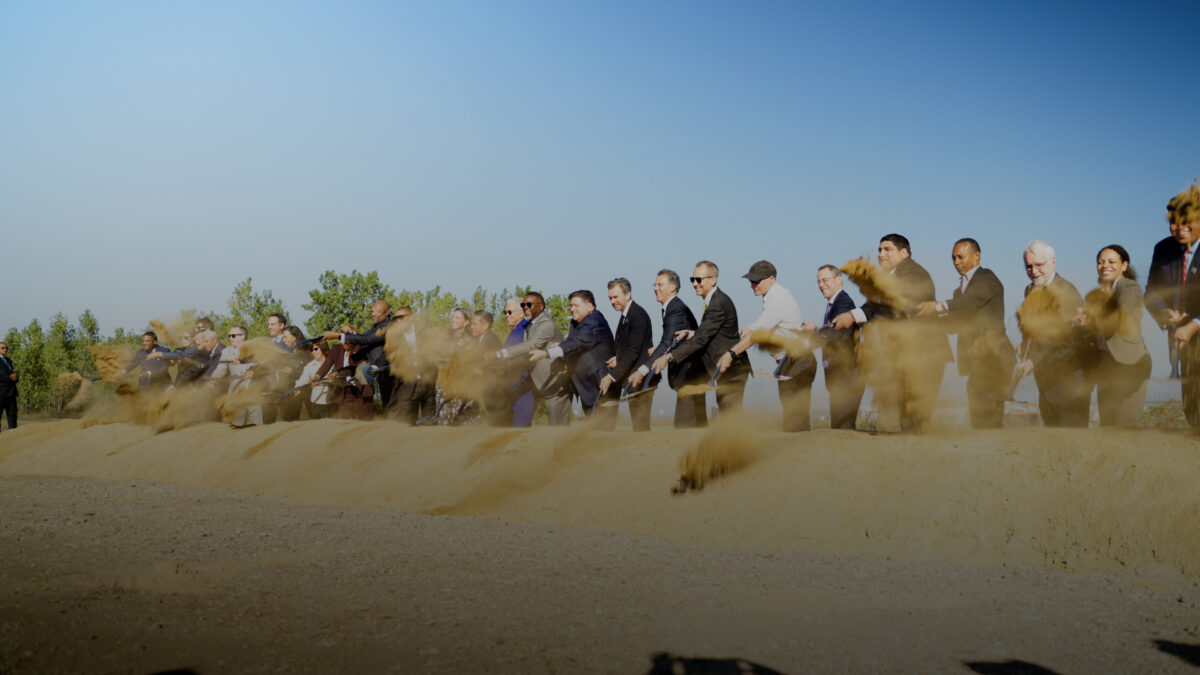
The leaders behind the Illinois Quantum & Microelectronics Park (IQMP) are future catalysts — trailblazers in science, engineering, research, industry and academia working together to uncover practical quantum applications and their infinite possibilities.
We invite you to get to know extraordinary pioneers behind the Park like Meera Raja, Senior Vice President of Deep Tech for P33, a nonprofit that’s making big bets to advance its vision of Chicago as a top-tier hub of quantum technology and advanced microelectronics; efficiently powering the next generation of computing to achieve transformative economic development; and cultivating tech growth and opportunities for all.
Meera grew up in a STEM family where constant discovery was the norm, questions were encouraged, and explanations were freely given. As a scientist, tech was a natural next step—placing her in innovative spaces alongside researchers taking on some of the world’s biggest problems. But Meera is just as likely to take science out of the equation when explaining the real-life benefits a project like the IQMP can make happen.
Meera, you have spent your career in solutions-driven roles focused on technology and research innovation. What first sparked your interest in the field?
My dad is an analytical chemist, my mom is a mathematician, and my uncle was actually a scientist at Fermilab. So, growing up, I was in a space where the people around me talked about STEM all the time. Despite being ever-present and normal, STEM always inspired a deep sense of curiosity and awe for me. It was a wondrous lens to see the world through — I loved that it was a way to explore how the world works and also imagine how it might work better.
Can you define “Deep Tech?” How would you explain your work to someone who is unfamiliar with your field?
Deep tech is, effectively, technology that stems from science and engineering, and entails developing solutions for really large, often capital-intensive challenges that require a long time to bring to market. This is risky, but if they succeed, they will be transformative not only for the industry but also society. At P33, we focus on advancing these types of big bets, aiming to be a connector and catalyst for innovation, to transform Chicago and Illinois into a global technology and innovation hub, driving economic growth for all.
Quantum and microelectronics can feel like abstract topics. Why should people care about them?
Quantum and microelectronics are foundational technologies that shape how every industry operates. Even if you don’t work directly with them, you will feel their impact―from discovering new drugs that help someone you know, to detecting financial fraud faster, to getting packages delivered more efficiently through smarter logistics. These technologies might sound abstract, but their potential to improve everyday life is very real.
What potential application of quantum technology excites or interests you the most?
They are honestly all very exciting, but I am especially drawn to the biology and chemistry applications. The potential to accelerate drug discovery is very powerful, and a place where quantum could make a very human impact.
How is P33 working together to bring the IQMP to life?
One of the special things about IQMP is the number of incredible partners collaborating to bring the vision to life. P33 is proud to be part of that team. Our goal is to bring an economic development lens to the table to ensure that the investments being made to advance the technology also translate into jobs and impact across the region. We are also focused on bringing new voices into the quantum dialogue, and were proud to co-organize the first-ever Global Quantum Forum in partnership with Illinois EDC and the Chicago Council on Global Affairs, which brought together leaders in national security, policy, AI, energy, workforce to talk about how quantum will shape the future.
What can you tell us about your colleagues?
The P33 team is a diverse group with unique talents, which enables us to do what we do as an organization. These different perspectives and expertise help us tackle a multitude of complex and exciting opportunities, and it extends from professional to personal. We discovered that, collectively, we could put on quite a talent show! From singers to synchronized swimmers, circus arts to magicians (That’s me! I was a volunteer hospital magician for an organization called Open Heart Magic), we’re hitting a lot of notes here at P33.
How do you see IQMP making an impact beyond just Illinois, but across the globe?
The IQMP is the first of its kind and extremely visionary in so many ways. I think it will set the standard of how we can move this industry forward. Along with the scale it brings through its hardware and facilities, I am really excited about the National Quantum Algorithm Center, which will really help unlock the full potential of quantum by connecting the research and technology development directly to real-world applications, driving meaningful impact for some of today’s most intractable challenges.
What advice would you give to students or young professionals who want to be part of the future of quantum and microelectronics?
As these fields grow, there will be an infinite number of roles in quantum and microelectronics, and they aren’t just for scientists or engineers, they’ll need thinkers, builders, communicators, and leaders from every background. I would encourage people who are excited about it to come talk to anyone at IQMP, P33, or any of the great partners in this quantum ecosystem and learn more about how they can become part of this exciting work.
MEERA: INSTANT INSIGHTS
Deep dish or tavern style: Tavern, of course.
Early bird or night owl: Both.
Favorite class in college: Inorganic chemistry.
If you could have dinner with any person, living or historical, who would it be: Marie Maynard Daly, a biochemist born in 1921 in Queens, New York, and the first African American to earn a Ph.D. in chemistry. She contributed to the study of protein synthesis, the relationship between cholesterol and hypertension, and more, and also mentored others and advocated for diversity in STEM.
If you had to describe quantum’s potential in one word, what would it be: Transformative.
Publish Date
October 14, 2025
Sign Up for Our Newsletter!



